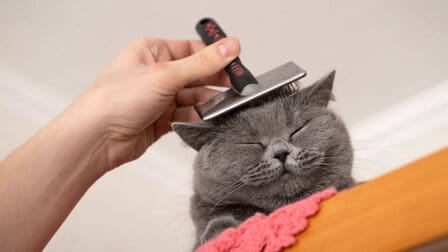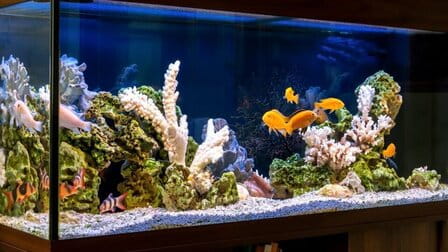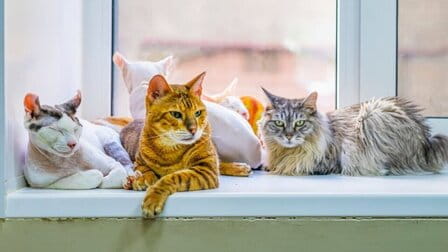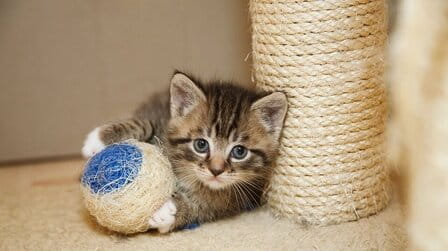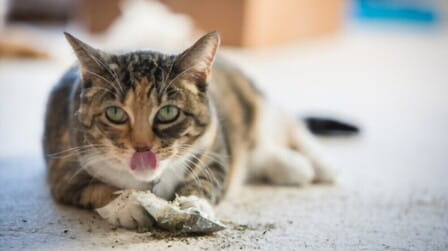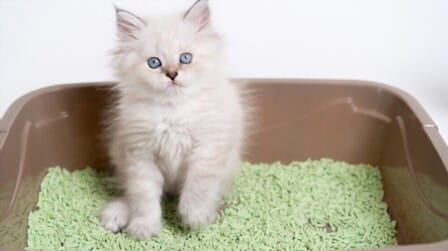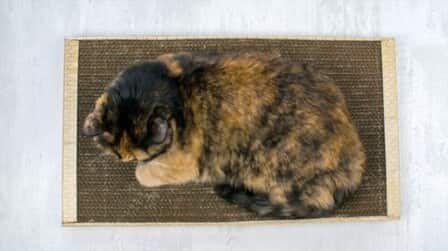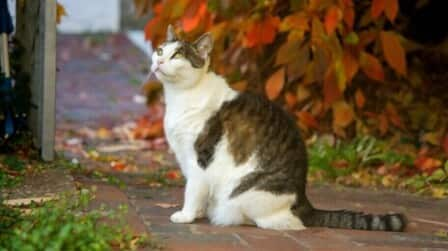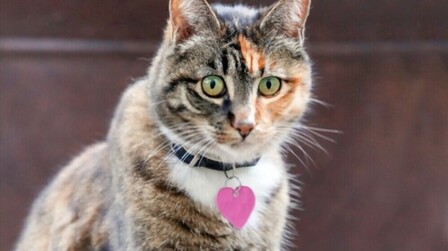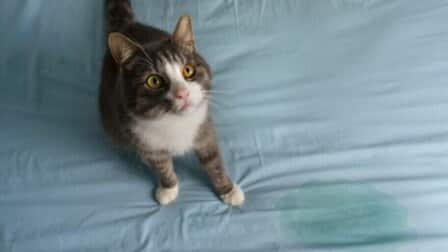Cats are curious by nature, so your favorite plants can be a huge draw for your little friend. Cats love to play and even eat plants, as well as dig the soil around bonsai. You shouldn't keep plants that are toxic to cats around your home – lilies are extremely toxic to cats, for example.
But even if plants are cat-safe, their behavior can still harm or kill plants. It can cause stomach upset or gastrointestinal obstruction if cats ingest them. It's also normal for cats to gag or vomit when leaves get stuck in their throats. Play it safe and keep plants out of your cat's reach, even if they're not toxic.
There are several methods that you can apply to reduce this.
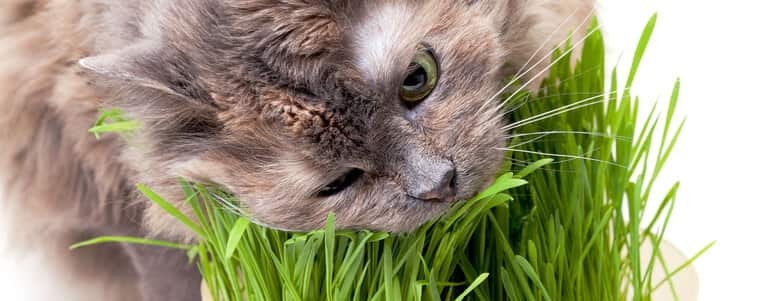
First, you need to know a few reasons why cats eat plants?
Cats love the taste of plants
Much of a cat's journey of discovery begins with their mouths. It doesn't sound very appealing to me, but even as babies, we experience many things the same way for the first time. As babies, we might put everything in our mouths and cats will do the same. If it tastes good, your cat will definitely come back for more.
Cats all love the texture of plants
If you regularly take your cat out for walks, you may find that they are often attracted to the grass and begin to graze. Grass can be the texture of plants they like.
Alternatively, it's likely that your cat has an upset stomach and is instinctively trying to get some fiber to help things move through their digestive tract.
It has also been suggested that the tickling nature of grass in the throat causes them to vomit. This can help with hair problems.
Cats also love the movement of leaves
Cats are likened to natural-born hunters. Although they are carnivores, the movement of a leaf or palm tree is almost irresistible. One of the most attractive houseplants are those with long, soft leaves. An example is the Spider Plant.
Cat chewing tree because bored
For many cat lovers, you will find your cat tired of being left alone and struggling with boredom. Cats have always been considered lower maintenance than their canine counterparts, but that's not necessarily accurate. If you don't keep them mentally and physically active, they can lead to destructive behavior. They are trying to find a way to meet their natural needs in our homes. If you don't provide stimulation for your cat, they will make their own, and your plants can be a target for them to feel less bored.
Cats eat plants to relieve stress
Many cats are prone to anxiety or stress. It can manifest in many ways by itself. Examples include chewing fur, eating things that are not food, sucking on blankets. Chew or eat things they shouldn't, such as plants. Observe your cat's body around the house, especially when they are chewing. If they seem insecure or on high alert, they may be dealing with stressful behavior.
How to prevent cats from eating plants
Here are some ways you can make your plants less appealing to cats and provide suitable alternatives to meet their needs.
1/ Preventing the behavior of damaging plants
Hang the tree on the ceiling.
You can buy hanging pots and hooks to the ceiling or garden. Hanging pots are both beautiful and can prevent cats from messing up!
Spray cat repellent on plants

You can buy sprays at the pet store that won't harm plants, but will keep cats away from them. One safe product label is “Get Off,” but you should check the label before purchasing a cat repellent. Some sprays have the potential to harm plants.
- You can make your own spray at home. Mix one part vinegar with three parts water and spray on the leaves. Cats don't like this smell so won't destroy your plants!
Train your cat not to go near bonsai.

This method works well with "remote punishment." The goal is to get the cat to associate approaching a bonsai with something bad, like being sprayed with water in the face. However, you should not make the cat associate the punishment with you. You need to make the cat not know where the punishment comes from.
- Trap a bonsai by placing a sensor-activated can of compressed air near it. This type of cat training aid can be purchased at a pet store or online.
- When cats approach bonsai, they are exposed to a stream of compressed air. This won't hurt them, but will cause the cat to hesitate about whether to approach the bonsai again.
Do not punish the cat yourself.
For example, if you spray water or yell at your cat, they will combine the punishment with you. Cats may also stop eating plants when you are present, but they will continue their disruptive behavior when you leave the room. Punishing cats really just makes them more cunning. Cats may be more afraid of you, and this is something you don't want to happen in your relationship with your pet.
Cover the plant with a layer of irritating material.
Place tin foil around the base of the tree, or plastic carpet protector with the spikes facing up. Your cat may not like walking on irritating surfaces to reach bonsai.
Use noise to stop your cat.
Collect and rinse empty cans - canned vegetables or soft drinks. Line up the cans along the edge of the table where you put the bonsai, then line up more rows to form a wall. When your cat jumps up and spills the can, the noise will startle them. Then the cat will not dare to go near the bonsai again after being scared to death.
2/ Provide other toys for cats

Understand their psychology - the reason behind the behavior of vandalism.
Cats can feel extremely bored when confined in your house. If swaying leaves are the closest thing to a toy or prey in their surroundings, you shouldn't be surprised that your cat is attracted to plants. To get the most out of your pet's behavior, you'll need to buy your cat another toy that's specifically made for her.
Play with cats often.
Some cat breeds are more active than others, so you will determine how much time they need to play. However, as a general rule, you should play with your cat at least twice a day for 5-10 minutes each time.
Use toys that get your cat moving.
While your cat will love the attention, you shouldn't turn playtime into a time of cuddling. You need to keep your cat excited and active to prevent them from chewing on your plants.
- Use toys with long strings to let your cat run from room to room without getting exhausted.
- Not all cats are attracted to lasers, but if they are, you're in luck! You can lie on the bed and enjoy the snack while the cat runs around trying to catch the little red dot!
3/ Selection of bonsai
Observe your cat's preferences.
Pay attention to plants that attract your cat's attention, then avoid keeping them in the house.
- For example, cats are often attracted to plants with thin leaves swaying in the wind.
- In this case, you should buy plants with large, heavy leaves so as not to attract the cat near.
Avoid buying "cat magnets" plants.
- Cats cannot resist yucca plants and will chew them mercilessly. Zinnia and marigolds are other examples of "cat magnets" plants that you should avoid.
- If you happen to buy plants that cats love to have in the house, you should put them on a high shelf where the cat cannot reach. You need to make sure that the cat does not have the ability to jump on the shelf, or else they will jump up and destroy your plants.
Buy plants that cats don't like.
There are also some plants that the cat can't seem to eat. They often have the strong smell like rosemary, lavender, or citrus. While you can enjoy the scent of these plants, cats won't enjoy chewing them.
You can also buy plants with leaves that are high up in the air that cats can't reach, such as small trees.
Some things you should avoid
Never spray plants or soil with a substance that could harm your cat, such as hot sauce. It can deter the cat, but it can also stick to the eyes and fur and cause damage or even loss of vision.
Only use products that have been approved by your veterinarian to be safe for cats. Also, always spray a small portion of the plant before applying the product to the entire plant to ensure that the plant is not damaged.
Update your list of poisonous plants (you can find them online) and avoid keeping them indoors as ornamental plants, even if they are far away from cats. Cats have a knack for jumping on places you would never think they could reach or consider safe. Poisoning accidents should not be facilitated by the presence of toxic plants anywhere in the home.
Conclusion
There are ways to prevent cats from eating plants. You should find out the cause to choose the right solution.

